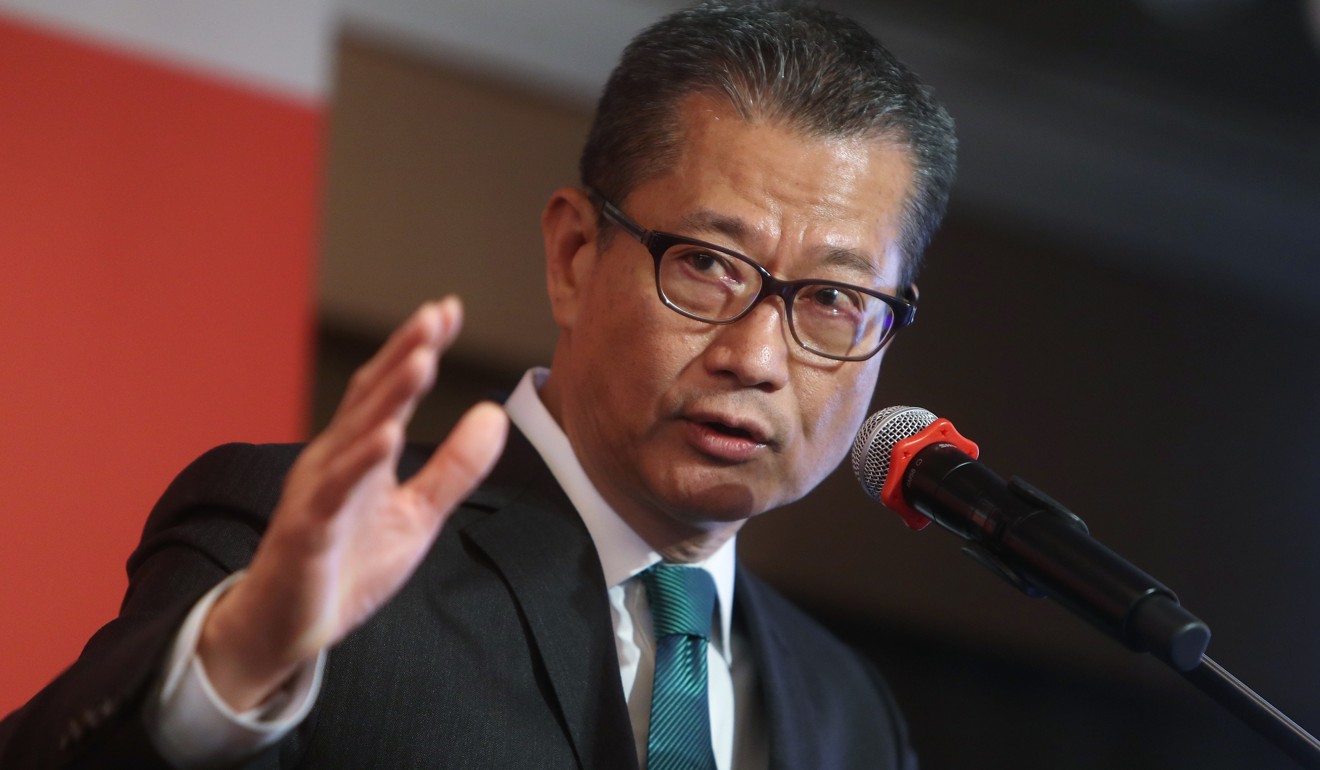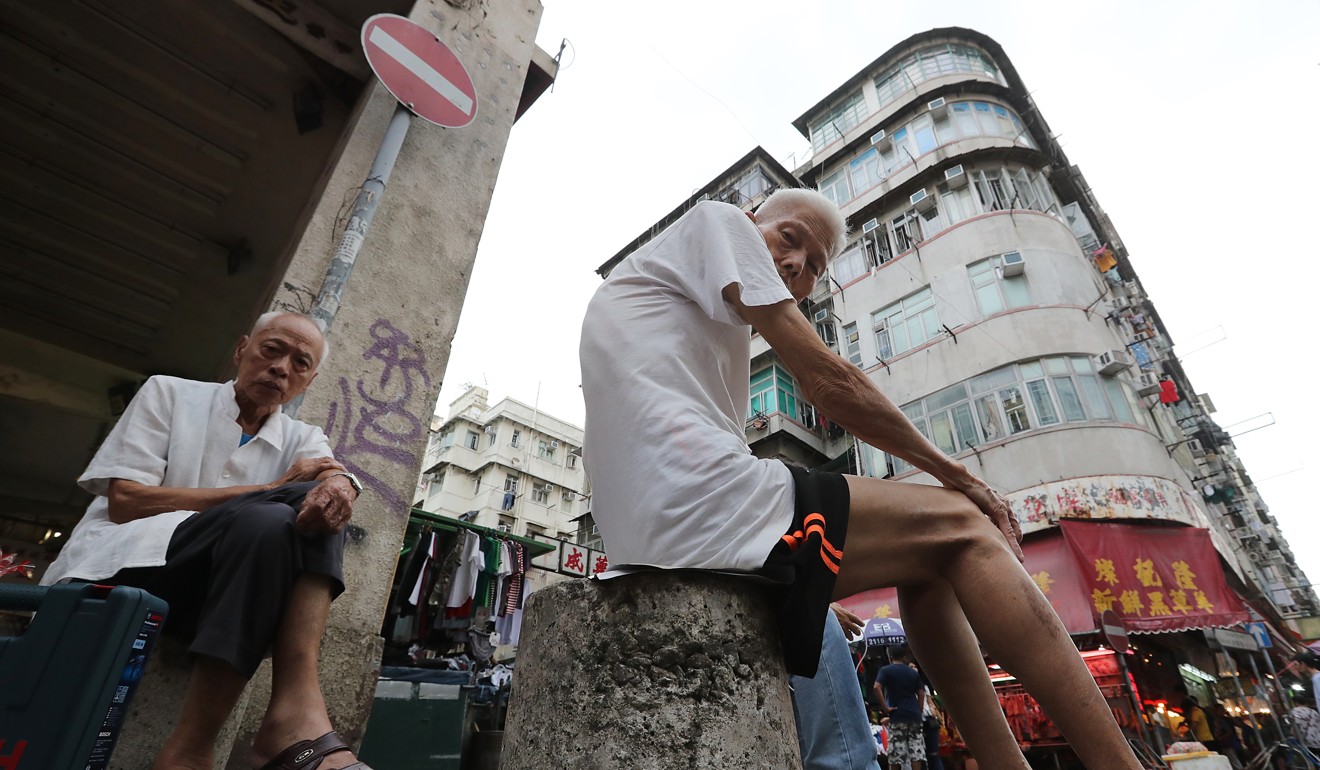
Extra billions in social welfare spending ‘failing to meet needs’ of Hong Kong’s ageing population
Research released by the city’s legislature shows that despite pledges to spend more in the coming years, Hong Kong is still underprepared for a greying citizenry, and some funds even go unused
Hong Kong government spending was called into question on Thursday after analysis released by the city’s legislature indicated officials were failing to meet the needs of an ageing population despite splashing out billions more on social welfare.
The report’s researchers took aim at limited growth in recurrent expenditure on elderly services and a decline in recurrent spending on education. They also asked whether money set aside from the government’s hefty budget surplus this year for one-off spending would end up underused.
43,000 needy and elderly in Hong Kong first to get cash handouts
Financial secretary Chan announced in his budget in February that the city would spend the equivalent of 21 per cent of gross domestic product on public programmes in the next five financial years. It came with a promise that officials would be more proactive in managing Hong Kong’s public finances in the face of various developmental, societal and economic needs.

Chan’s pledges were regarded as an expression of a new fiscal philosophy held by Hong Kong leader Carrie Lam Cheng Yuet-ngor, who has indicated a willingness to depart from the long-held budgetary stipulation to keep public expenditure at or below 20 per cent of GDP.
However, the Legco research paper said actual spending on elderly services stood at 11 per cent for 2018-19, unchanged from 2014-15. Increases had come in the years before 2014-15, it said, with the figure at 9.7 per cent in 2007-8.
Raft of welfare measures set for Hong Kong’s ageing population
The stagnant elderly spending was despite growth in total recurrent social welfare expenditure rising from 16.3 per cent in 2012-13 to 19.6 per cent in 2018-19.
“It is noted that such a trend, if it continues, may not be proportionate to the needs of an ageing population,” the paper said.

The report compared the city’s fiscal planning with Singapore’s, pointing out that the Lion City planned to increase its goods and services tax rate by two percentage points sometime between 2021 and 2025, to ensure sufficient revenue to prepare for, among other things, its also rapidly ageing population.
Official statistics show the number of Hongkongers aged 65 or above will rise by about half a million in the next eight years. Their number as a proportion of the population will increase from 17.8 per cent this year to 24.6 per cent by the middle of 2026.
How can Hong Kong get better carers for its ageing population?
On education, total spending this year is set to rise by a hefty 28.4 per cent to hit HK$113.7 billion. But as a share of total government expenditure it has declined from 22.9 per cent in 2007-8 to 20.4 per cent in 2018-19. The same phenomenon is true of recurrent expenditure on education, which dropped from 23.5 per cent in 2007-8 to 20.8 per cent in 2018-19.
The researchers said this had been reflected in university funding.

With bigger surpluses to come in future years, the government should consider reducing taxes in the long run
“The number of first-year first-degree places funded by the University Grants Committee each year has remained virtually unchanged at 15,000 since 1994,” the paper said.
The government’s habit of setting aside cash from the city’s huge fiscal reserves and budget surplus every year to be used for special one-off spending was also called into question.
Only 28 per cent of a HK$50 billion fund earmarked for health care reform in 2008-9 had so far been used, the report said.
Hong Kong to launch retirement annuity scheme in July as it eyes an ageing population
Meanwhile, the Housing Authority, the main provider of public housing in Hong Kong, has projected it has sufficient financial resources for the next five years and will not need any money from a HK$72 billion housing reserve set up four years ago.
“The government prefers setting up temporary funds to increasing annual spending,” said Terence Chong Tai-leung, an economist at the Chinese University of Hong Kong. “But with bigger surpluses to come in future years, the government should consider reducing taxes in the long run.”
Chong said the reduction in recurrent education spending was partly a result of fewer births in recent years, but the government could still channel spending into enhancing education quality.
“For example, students could be offered subsidies to pay for university tuition, and poor children could be better equipped for digital learning,” he said.
Ageing of Hong Kong’s population gathers pace, according to report
But on the elderly, Dr Wong Hung, an associate professor with Chinese University’s department of social work, said it was hard to draw the conclusion the government had invested little in helping these residents.
“The government has been pouring in quite a lot of money in recent years, such as through the introduction of the Old Age Living Allowance. They are offering more money [in the form of allowances] than through services,” he said.
“But it should be done in a balanced way. The government should also boost elderly services and hire more people to do so.”


